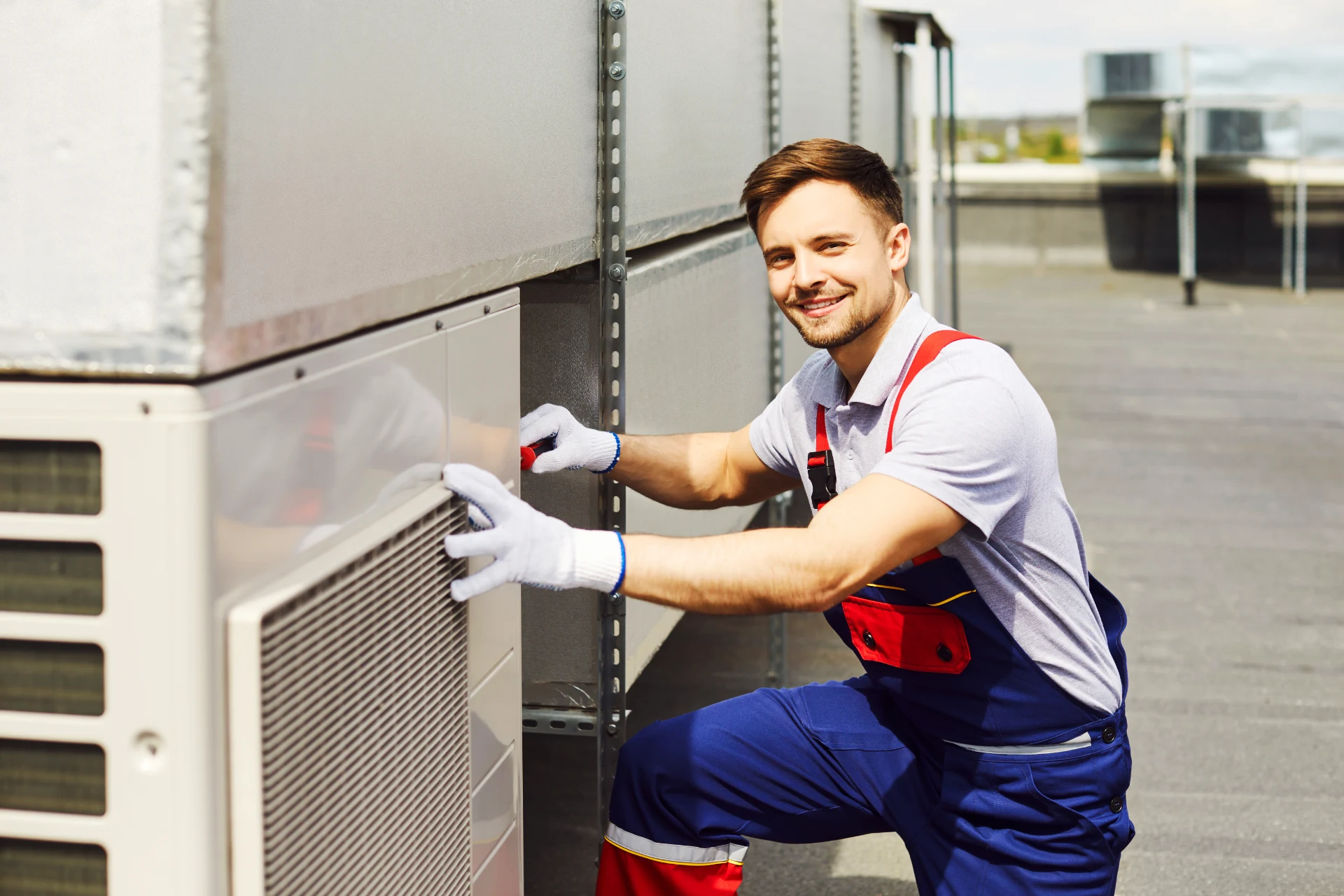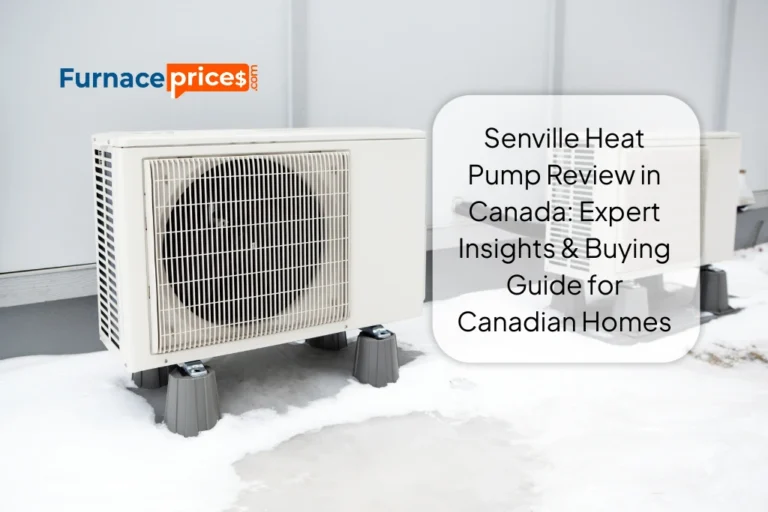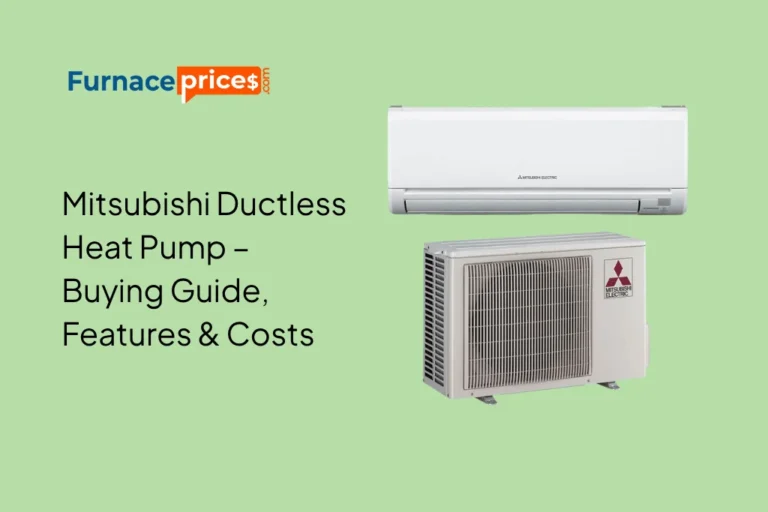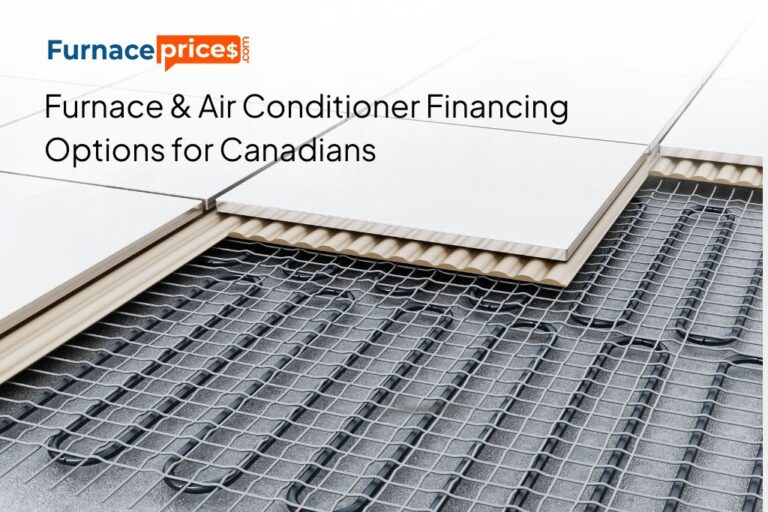-
Emergency/Next-Day Furnace Installation Available!
The Ultimate Guide: 15 Tips for Buying the Right Furnace

Introduction
Buying the right furnace is a significant investment for any homeowner. It is one of the most critical components in maintaining comfort within your space, especially during the cold months. The right furnace can mean the difference between a warm, cozy winter and a frigid, uncomfortable one. With so many options and considerations, buying the right furnace can feel overwhelming. At FurnacePrices.com, we understand the intricacies involved in making this decision, so we compiled a comprehensive guide featuring 15 essential tips to help you choose the perfect furnace for your home.
1. Assess Your Heating Needs
Before you start shopping for a furnace, it’s important to assess your heating needs. Consider the size of your home, the number of rooms, your insulation levels, and your local climate. Buying the right furnace means selecting a unit that matches your home’s requirements—too small, and it will struggle to keep you warm; too large, and it could waste energy and wear out faster.
How to Determine Heating Requirements
BTU Calculation : BTU (British Thermal Units) is a unit that measures heating power. Calculate your home’s heating requirement by finding the area in square feet, then apply a general rule of thumb of 20 BTU per square foot.
Consider Local Climate : If you live in a cold climate, you may need a furnace with a higher BTU output.
2. Research Different Furnace Types
There are several different types of furnaces, each with its own advantages and disadvantages. The most common types include:
Gas Furnaces : Generally more efficient and cost-effective, gas furnaces are widely used. They rely on natural gas to produce heat.
Electric Furnaces : While they often have lower installation costs, electric furnaces can lead to higher energy bills in the long run.
Oil Furnaces : Less common today, oil furnaces are typically used in areas not served by natural gas lines.
Propane Furnaces : Similar to gas furnaces but use propane instead, making them suitable for rural areas without natural gas.
When buying the right furnace, consider the availability of resources in your area and evaluate which type best fits your heating needs and budget.
3. Look for Energy Efficiency Ratings
When shopping for a furnace, energy efficiency should be a top priority. Furnaces are rated based on their AFUE (Annual Fuel Utilization Efficiency), which measures how much of the energy consumed is converted into heat. Understanding these ratings is essential when buying the right furnace for your home.
Understanding AFUE Ratings
Standard Efficiency : Furnaces with an AFUE rating of 80% or lower are considered standard, meaning they convert 80% of fuel into heat.
High Efficiency : Furnaces with AFUE ratings of 90% and above are considered high-efficiency models and can lead to significant savings on your energy bills.
Investing in a more efficient model may cost more upfront but will save you money over time.
4. Explore Features and Technology
Modern furnaces come with a variety of features designed to enhance efficiency and comfort. When evaluating options, consider looking for features that support buying the right furnace for your home and lifestyle.
Modulating Burners : These allow the furnace to adjust its output depending on the heating needs, leading to increased efficiency.
Variable-Speed Blowers : These create a more consistent temperature by running at different speeds, which improves comfort.
Smart Thermostats : Many new furnaces can work with smart thermostats that allow remote control and scheduling, optimizing energy use.
Researching features that align with your specific needs is key to buying the right furnace.
5. Set a Budget
Furnace prices can vary significantly based on type, brand, and features. Establishing a realistic budget is crucial when buying the right furnace for your home.
Budgeting Tips
Factor in Installation Costs : Don’t forget to include installation in your budget, as this can represent a significant portion of the total cost.
Consider Long-Term Savings : Sometimes it’s worth spending a little more upfront for a unit that promises better energy efficiency and lower operating costs in the long run.
Remember, the cheapest option isn’t always the best option when buying the right furnace.
6. Obtain Multiple Quotes
Before making a decision, it’s advisable to obtain multiple quotes from different HVAC contractors. This not only helps you in buying the right furnace but also gives you a better idea of the current pricing landscape and allows you to compare different furnace options.
How to Evaluate Quotes
Itemized Costs : Ensure quotes include a breakdown of itemized costs for the furnace and installation.
Warranty Offers : Compare warranty offers among contractors, as some may provide better coverage than others.
Keep Reputation in Mind : Always consider the reputation of the HVAC contractor to ensure you’re receiving high-quality service.
7. Check for Rebates and Incentives
Depending on the model and type of furnace, there may be local or federal rebates available. Energy-efficient models often qualify for tax credits or other incentives, significantly offsetting your initial investment when buying the right furnace.
Resources for Rebates
Local Utility Companies : Many provide rebates for homeowners who invest in energy -efficient appliances.
Government Programs : Check federal and provincial government websites for available incentives related to energy efficiency.
By taking advantage of rebates while buying the right furnace, you can significantly reduce costs and improve your home’s energy efficiency.
8. Evaluate Installation Considerations
Installation is a key factor that will affect your furnace’s performance and efficiency. A properly installed furnace functions better and lasts longer, especially when you’ve focused on buying the right furnace from the start.
Questions to Ask Your Installer
Experience : Ask about the installer’s experience with the specific model you are considering. This is especially important after buying the right furnace, as proper setup ensures you get the full benefit of your investment.
Installation Process : Inquire about the installation timeline and what you can expect during the process.
Choose the Right Timing
Off-Season Installation: Consider scheduling your furnace installation during the off-season (late spring or summer) when HVAC companies are less busy and may offer better rates. This strategy is not only cost-effective but also ideal after buying the right furnace, giving you time to prepare before colder months arrive.
9. Ensure Proper Ventilation
Proper ventilation is critical for any heating system. Inadequate ventilation can lead to poor air quality and uneven heating throughout your home.
When buying the right furnace, understanding ventilation types is essential to ensure safety and efficiency.
Ventilation Types
Direct Vent : This system draws air from outside and expels exhaust outside, making it highly efficient and safe.
Induced Draft : This system uses a fan to help remove exhaust gases. Make sure to choose a furnace that matches the ventilation system in your home.
Discuss your home’s layout and materials with your HVAC professional to ensure proper ventilation when buying the right furnace.
10. Consider Noise Levels
Noise is an often-overlooked factor when buying the right furnace. Some units can be quite loud, which may be disruptive to your household.
Measuring Noise Levels
Decibel Rating : Check the decibel rating (dB) of different furnace models. Quieter units typically operate at 55 dB and below, while louder models can exceed 70 dB.
Consider Location : Think about where the furnace will be installed. If it’s near living spaces, investing in a quieter system may be worthwhile.
11. Look for Reliable Brands
Not all furnaces are created equal, and buying the right furnace can have a substantial impact on reliability and performance.
Top Brands to Consider
Research reputable brands in the market that are known for their quality and customer service. Some of the top brands include:
Trane : Known for reliability and efficiency.
Carrier : Offers a range of energy-efficient models.
Lennox : Recognized for advanced technology and performance.
Rheem and Goodman : Provide budget-friendly options without sacrificing quality.
Read customer reviews and consult your HVAC professional for additional insights.
12. Ask About Warranties
A solid warranty can provide peace of mind and protect your investment when buying the right furnace. Warranties vary by model and manufacturer, so it’s critical to compare them during your research.
Warranty Types
Parts Warranty : Covers different components of the furnace for a set period, often ranging from 5 to 10 years.
Limited Lifetime Warranty : Some brands offer limited lifetime warranties on heat exchangers, which can be an excellent long-term investment.
Labor Warranty : Ensure your contractor provides a labor warranty for installation to cover any potential issues after installation.
When buying the right furnace, review the warranty policy details carefully to understand what is covered and for how long.
13. Schedule Regular Maintenance
Once you have installed your new furnace, regular maintenance is crucial to ensure it remains running efficiently. Whether you’re buying the right furnace for your home or already have one installed, scheduling annual servicing can extend the life of your unit and prevent costly repairs.
Maintenance Tasks to Include
Filter Replacement : Change your furnace filter every 1 to 3 months to maintain airflow and efficiency.
Professional Inspections : Schedule a professional inspection at least once a year to detect any potential issues early.
Clean Ducts and Vents : Keeping your ducts clean will prevent dust and debris from circulating through your home.
14. Understand How Heating Zones Work
If you have a larger home or a multi-level house, you may want to consider zoning systems. These allow for individual control of temperature in different areas of your home.
Benefits of Zoning
Energy Efficiency : Heat only the areas you use regularly, saving you money on energy bills.
Increased Comfort : Set different temperatures for different rooms based on usage, enhancing comfort for all occupants.
Consult with your HVAC professional about the feasibility of implementing a zoning system for your home.
15. Prepare for Future Needs
As you select a furnace, think about your long-term needs. Will your family grow? Are you planning on upgrading your insulation or windows? Choosing a furnace with a little extra capacity can account for future changes, ensuring you won’t have to replace the unit sooner than necessary.
Future-Proofing Tips
Consider Energy Trends : Investigate if your community will have energy efficiency initiatives that could influence your needs in the upcoming years.
Select a Versatile Model : Consider models that allow for additional upgrades as necessary, such as smart technology or enhanced filters.
Conclusion
Choosing the right furnace is a significant decision that can impact your home’s comfort and your energy bills for years to come. By following these 15 tips, you can navigate the buying process with confidence and make an informed decision that best suits your specific needs and situation.
At FurnacePrices.com, we understand the complexities of selecting the right furnace, and we are dedicated to providing you with the information and resources you need to make the right choice. Whether you’re looking for detailed comparisons of different furnace models, need advice on installation, or are seeking reliable HVAC companies in your area, our platform is here to assist you every step of the way.
Your Next Steps
Now that you are equipped with these essential tips, it’s time to take action!
Start Your Research : Look into the various furnace models, types, and brands available. Utilize our comparison tools to see what fits your budget and needs.
Contact Local HVAC Professionals : Reach out for estimates and ask plenty of questions to ensure you understand your options.
Take Advantage of Resources : Explore the articles and guides on FurnacePrices.com for further insights that can guide you through the purchasing process.
Join Our Community : Connect with other homeowners through our website, forums, or social media. Share your experiences and get feedback from those who have recently gone through the buying process.
For homeowners looking to deepen their understanding of energy efficiency ratings and what to look for when buying the right furnace, the U.S. Department of Energy offers a wealth of helpful information. Their guide on energy-efficient home heating systems provides insights into AFUE ratings, fuel types, and tips for reducing heating costs. Reviewing this resource can help you make more informed decisions when comparing furnace models and selecting the best system for your home.
Final Thoughts
Remember, a furnace is not just an appliance; it’s an integral part of your home’s heating system and overall comfort. Take your time to learn, compare, and choose wisely. The right furnace will not only create a cozy environment in your home but will also provide energy savings and peace of mind.
Thank you for choosing FurnacePrices.com as your trusted resource. We look forward to assisting you in your journey toward a more comfortable home!
🔥 Get Started Today with FurnacePrices.com!
Ready to take control of your home comfort? Whether you’re exploring furnace or air conditioner options, we make it easy to compare prices, find expert advice, and connect with trusted professionals—all tailored specifically for Ontario residents.
📍 Serving Areas: Hamilton, Burlington, Brantford, Cambridge, Kitchener, Milton, Oakville
📩 Have questions?
Reach out to us at contact@furnaceprices.com or fill out the form below to get personalized recommendations.
Start your journey to a warmer, more energy-efficient home today!







